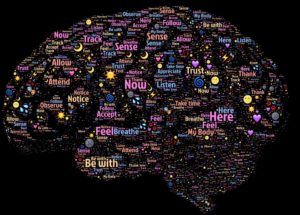Earlier this year I had the good fortune to spend several morning hours listening to Stanford professor and researcher Fred Luskin talk about happiness. Dr. Luskin is a psychologist who has done groundbreaking research on forgiveness over many years. He’s the author of many books, and frequently lectures about forgiveness. I often recommend his book Forgive for Good: A Proven Prescription for Health and Happiness to clients suffering from anger and hurt.
But this morning he was discussing happiness. He came into the room with no pretense. His hair was wild and curly, partly dark and partly gray. He was wearing a puffy black down jacket, a T-shirt, running tights, and sneakers. Clearly a man comfortable with himself, and not trying to impress.
He started off by doing something quite outrageous. He asked the audience of 30 people to turn off their cell phones. Not to lower the volume, or turn off the ringers, but to actually shut down their cell phones. This clearly caused some discomfort among the audience. He explained that the reason he wanted people to turn off their cell phones is so that they would truly focus on the present and to listening to him. He cited a statistic that people check email on average 79 times a day. Each time they check their email they get a burst of adrenaline and stress. Clearly this is not conducive to genuine happiness.
He pointed out that you can’t really be happy unless you can sit still and relax. “We are all descended from anxious monkeys,” he said, and clearly most of us do not know how to sit still and relax. “Happiness is the state of ‘enough’ “, he said, “and is not consistent with wanting more.”
He pointed out that wanting what you have equals being happy. And that wanting something else than what you have equals stress.
He talked about the beginnings of his career, when clinical psychology was focused on unhappiness and problems. There was no science of happiness. Now there is a huge area of research and writing on happiness called Positive Psychology.
He shared some simple techniques for enhancing happiness. One simple technique revolved around food. When you’re eating don’t multitask. Give thanks for the food, and really focus on tasting and savoring that food. One technique I have often used is to close my eyes while I savor food, which greatly intensifies the taste.
Another simple practice is whenever you are outside, take a few moments to feel the wind or sun on your skin.
He also talked about phones and how we use them. We are completely addicted to the little bursts of dopamine and adrenaline that we get each time we check our email or we get a text. And rather than be present in most situations, we simply look at our phones. Go to any outdoor cafe and look at people who are sitting alone. Most of them are looking at their phones rather than experiencing the surroundings or interacting with other people. Even sadder, look at people who are with others, either at a cafe, or a restaurant. Much of the time they too are lost in their smartphones.
He discussed how happiness is not correlated with achievement. Nor is it correlated with money once you have an adequate amount to cover basic needs. What happiness seems to be most correlated with is relationships. If you like yourself and connect with other people you will tend to be happy.
He reviewed the relationship between impatience, anger, frustration, judgment and happiness. He pointed out that whenever we are impatient or in a hurry all of our worst emotions tend to come out. When someone drives slowly in front of us we get annoyed. When someone takes too much time in the checkout line ahead of us, we get angry.
I really liked his discussion of grocery stores. He pointed out what an incredible miracle a modern American grocery store really is. The variety of delicious foods that we can buy for a relatively small amount of money is truly staggering. But instead of appreciating this, we focus on the slow person in the line ahead of us, or the person who has 16 items in the 15 item express line. What a shame!
He pointed out we have a choice of what we focus on, and this choice greatly influences our happiness. We all have a choice to focus on what’s wrong with our lives, or what’s right with our lives. And we have a choice of whether to focus on how other people have treated us poorly, or how other people have treated us well. These choices of focus will determine how we feel.
We also have the choice of focusing on what we already have, or focusing on what we do not have and aspire to have. For instance, let’s imagine that you are currently living in a rental apartment. The apartment is quite nice, although there are things that could be better. The kitchen could be bigger, and the tile in the bathroom could be prettier.
Perhaps you imagine owning a house, and you feel badly about renting an apartment. Rarely do we appreciate what we have. Having a place to live is clearly infinitely better than being homeless. And even a flawed apartment is still home.
All of us need to work on learning to emphasize generosity, awe, and gratitude in our lives if we want to be happy. Generosity means kindness and acceptance in contrast to anger and judgment. Awe is the ability to be astounded by the wonder and beauty in the world. Gratitude is appreciation for all the good things in your own life and in the world.
He cited one interesting study where researchers observed a traffic crosswalk. They found that the more expensive cars were less likely to stop for people in the crosswalks. Thus wealth often correlates with a lack of generosity and a higher level of hostility. Other data shows that there is very little correlation between wealth and charitable giving, with much of the charitable giving in the USA coming from those of modest means.
He also talked about secular changes in our society. He quoted a statistic that empathy is down 40% since the 1970’s. At the same time narcissism has increased by roughly 40%. This has a huge negative impact on relationships.
I was impressed by this simple but profound message of Dr. Luskin’s talk. Slow down, smell the roses, turn off your phone, focus on relationships, appreciate what you have, and become happier.
It’s a simple message, but hard to actually do.
I’m off to go for a hike in the hills, without my phone!


